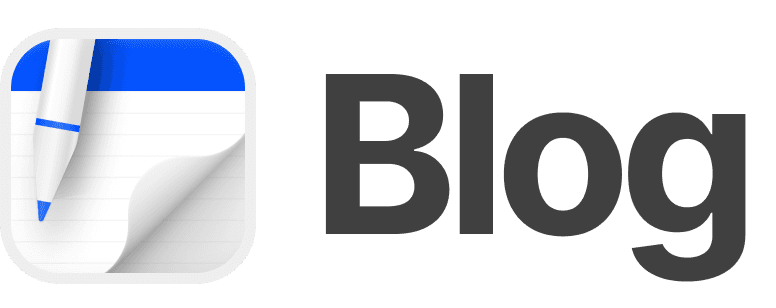Written by
Timon Harz
The Importance of Self-Reflection in Productivity: How to Evaluate Your Progress and Adjust Your Strategy
As individuals strive to maximize their productivity and achieve their goals, it's easy to get caught up in the hustle and bustle of daily tasks and forget to take a step back and reflect on our progress. Self-reflection is a crucial component of productivity, allowing us to evaluate our efforts, identify areas for improvement, and adjust our strategy to achieve greater success. In this blog post, we'll explore the importance of self-reflection in productivity and provide practical tips on how to evaluate your progress and adjust your strategy.
Why Self-Reflection is Essential for Productivity
Self-reflection is the process of examining your thoughts, feelings, and actions to gain a deeper understanding of yourself and your behavior. In the context of productivity, self-reflection enables you to:
- Identify patterns and habits that hinder or help your productivity
- Evaluate the effectiveness of your goals and strategies
- Develop a growth mindset and acknowledge areas for improvement
- Adjust your approach to better align with your values and priorities
- Cultivate self-awareness, which is critical for making informed decisions and goal-setting
How to Evaluate Your Progress
Evaluating your progress is a critical component of self-reflection. Here are some steps to help you assess your productivity and identify areas for improvement:
- Track your progress: Keep a journal, spreadsheet, or use a productivity app to track your tasks, goals, and progress. This will help you identify patterns, habits, and areas where you're struggling.
- Set clear goals and metrics: Establish specific, measurable, achievable, relevant, and time-bound (SMART) goals. Track your progress against these goals and adjust your strategy as needed.
- Assess your time management: Evaluate how you spend your time, including tasks, meetings, and distractions. Identify time-wasting activities and adjust your schedule accordingly.
- Reflect on your habits: Identify habits that support or hinder your productivity, such as exercise, meditation, or social media use.
- Conduct a weekly or monthly review: Schedule regular review sessions to evaluate your progress, identify areas for improvement, and adjust your strategy.
How to Adjust Your Strategy
Once you've evaluated your progress, it's time to adjust your strategy. Here are some tips to help you make informed decisions and implement changes:
- Re-evaluate your goals: Assess whether your goals are still relevant, achievable, and aligned with your values. Make adjustments as needed.
- Identify new strategies: Based on your self-reflection, identify new strategies or approaches that can help you achieve your goals more efficiently.
- Prioritize tasks: Re-prioritize your tasks to focus on high-impact activities that align with your goals.
- Eliminate distractions: Identify and eliminate distractions that hinder your productivity, such as social media or email notifications.
- Develop a growth mindset: View challenges as opportunities for growth and development, rather than threats to your ego.
Practical Tips for Incorporating Self-Reflection into Your Routine
Incorporating self-reflection into your daily routine can be challenging, but it's essential for achieving your goals. Here are some practical tips to help you get started:
- Schedule self-reflection time: Set aside dedicated time for self-reflection, whether it's daily, weekly, or monthly.
- Use a journal or planner: Record your thoughts, feelings, and insights in a journal or planner to track your progress and identify patterns.
- Practice mindfulness: Incorporate mindfulness techniques, such as meditation or deep breathing, to increase your self-awareness and reduce distractions.
- Seek feedback: Ask for feedback from trusted friends, family, or colleagues to gain new insights and perspectives.
- Review and adjust regularly: Regularly review your progress and adjust your strategy to ensure you're on track to achieving your goals.
Conclusion
Self-reflection is a critical component of productivity, enabling you to evaluate your progress, identify areas for improvement, and adjust your strategy to achieve greater success. By incorporating self-reflection into your daily routine, you'll cultivate a growth mindset, increase your self-awareness, and make informed decisions that align with your values and priorities. Remember, productivity is a journey, and self-reflection is the key to unlocking your full potential.If you're looking for a powerful, student-friendly note-taking app, look no further than Oneboard. Designed to enhance your learning experience, Oneboard offers seamless handwriting and typing capabilities, intuitive organization features, and advanced tools to boost productivity. Whether you're annotating PDFs, organizing class notes, or brainstorming ideas, Oneboard simplifies it all with its user-focused design. Experience the best of digital note-taking and make your study sessions more effective with Oneboard. Download Oneboard on the App Store.
Other posts
The Benefits of Mindful Note-taking for Students
Discover the transformative benefits of mindful note-taking for students in our latest blog post. Learn how this effective technique enhances focus, retention, and understanding, leading to improved academic performance. Explore practical tips and strategies to incorporate mindfulness into your note-taking routine, making studying more engaging and productive. Perfect for students seeking to elevate their learning experience!
How to Use AI to Automate Your Note-taking Tasks
Discover how to streamline your note-taking process with AI! In this blog post, we explore innovative tools and techniques to automate your note-taking tasks, enhance productivity, and improve organization. Learn practical tips on integrating AI into your workflow, making your note-taking smarter and more efficient. Perfect for students, professionals, and anyone looking to save time and boost their efficiency!
The Importance of Reflection in Student Learning: How to Reflect Effectively
Discover the critical role of reflection in student learning and explore effective strategies for implementing reflective practices. This blog post delves into the benefits of reflection, offers practical tips for students, and highlights techniques to enhance learning outcomes. Unlock the potential of reflective thinking to boost academic success and personal growth!
Company
About
Blog
Careers
Press
Legal
Privacy
Terms
Security

